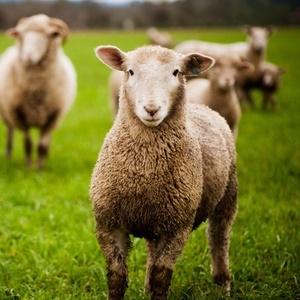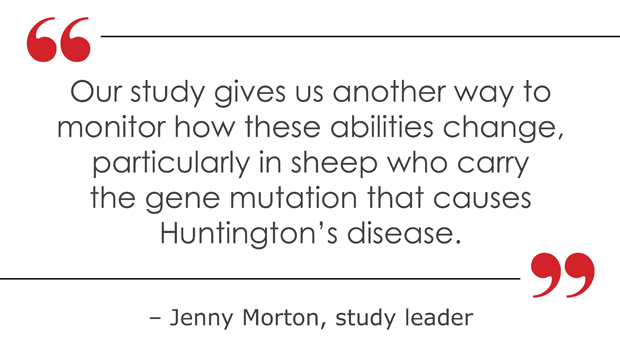
If you ever find yourself in the company of sheep, don't be surprised if they seem to recognise you.
Researchers trained eight sheep to identify celebrity faces from photographs. The investigators also found that the sheep could identify a picture of their handler without any training.
This line of research could help improve understanding of Huntington's disease and other neurodegenerative conditions in people, according to scientists at the University of Cambridge in England.
Help for Huntington's disease
Along with dogs and monkeys, sheep are social animals that can recognise other sheep as well as familiar people, the study authors explained. However, the ability of sheep to identify faces was unclear.
"Anyone who has spent time working with sheep will know that they are intelligent, individual animals who are able to recognise their handlers," said study leader Jenny Morton.
"We've shown with our study that sheep have advanced face-recognition abilities, comparable with those of humans and monkeys," she noted in a university news release.
"Sheep are long-lived and have brains that are similar in size and complexity to those of some monkeys. That means they can be useful models to help us understand disorders of the brain – such as Huntington's disease – that develop over a long time and affect [mental] abilities," Morton said.
What is Huntington's disease?
Huntington's disease is a genetic disorder that causes neurons (nerve cells) in particular parts of the brain to degenerate, resulting in debilitating physical, cognitive and emotional problems.
This disease is caused by a mutation in a single gene (IT15). The child of a person carrying this gene (male or female) has a 50% chance of inheriting it if they receive the gene. It is not exactly sure how nerve cells are killed off. Symptoms differ from person to person and can be physiological (twitching, loss of balance), cognitive (thinking, judgement, memory) or psychological (a change in personality).

How the study will help
This study was published in the journal Royal Society: Open Science.
"Our study gives us another way to monitor how these abilities change, particularly in sheep who carry the gene mutation that causes Huntington's disease," Morton pointed out.
Huntington's disease gets progressively worse, and features uncontrolled movements, abnormal posture, and changes in behaviour, judgment and thinking.
Morton and her team are currently studying sheep that have been genetically modified to carry the gene mutation that causes Huntington's disease.
Image credit: iStock




 Publications
Publications
 Partners
Partners














